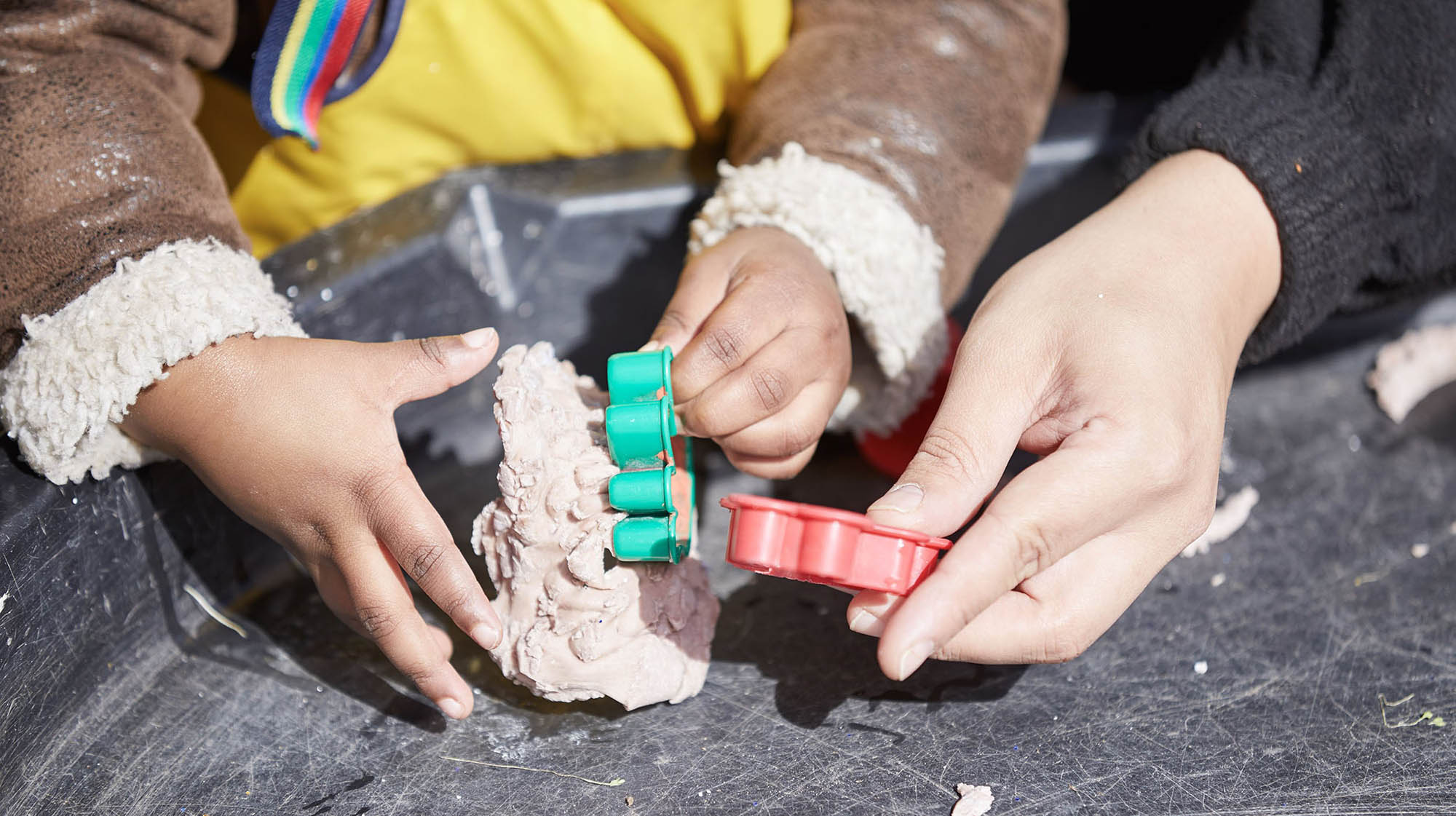Being reflective and reflexive. UON academic co-develops early years belonging and inclusion tool
Date 15.09.2023
15.09.2023
Fostering a greater sense of inclusion in the early years sector, for families and practitioners, is being enhanced thanks to University of Northampton (UON).
Professor of Child Advocacy Eunice Lumsden at UON has co-created a new reflective practice workbook to help early years professionals develop belonging and inclusion within their service.
The MANDELA Model for Early Childhood Education and Care workbook follows the work of former UON Senior Lecturer in Social Work Dr Prospera Tedam.
Dr Tedam drew on her research into the experiences of Black African social work students on placement to develop the MANDELA Model to support supervision.
Available now is the free-to-download workbook by Professor Lumsden. It contains questions that allow early years educators the opportunity for reflective thought about diversity, inclusion and belonging for its staff and families.
Most importantly, the workbook encourages reflexive practice – that is, for practitioners to take their thoughts and transform them into changes to benefit them, their service and themselves.
Each letter in MANDELA denotes a key aspect of good reflexive practice:
- Make time – ensure there is sufficient time to understand the diversity of staff, children and families using the setting.
- Acknowledge – how does the organisation take on board the diversity of its people and communities?
Needs – how best to address the individual needs staff, children and families, such as language differences, and the needs of people who are neurodiverse. How does the setting build relationships? - Differences – not just recognising protected characteristic differences, but how does the organisation embrace these to enhance its work.
- Educational experiences – recognising and valuing the previous and current educational experiences of staff and how the organisation helps families understand the concepts of child development and early learning.
- Life experiences – consider how an organisation accepts and incorporates the previous life experiences of staff.
- Age – of staff, families, children, and the organisation’s understanding of how age is viewed by different cultures.
Professor Lumsden says: “With reflective practice, there is a chasm of difference between hearing what someone says to you and listening to them. We need to really understand their experiences, to create actions that moves us from discussing issues to creating change.
“The MANDELA Model for Early Childhood Education and Care is a fitting name as it signifies hope and resilience. The benefits to the early years sector were clear to see; Dr Tedam’s work inspired me to think if wecould phrase the questions to ask early years educators to look at their settings and practice in a different way. To reflect on and take action to ensure people know and feel they belong.
“It is a privilege to see the workbook now ready and freely available for what I hope will be the start of a cultural sea-change in the profession.”